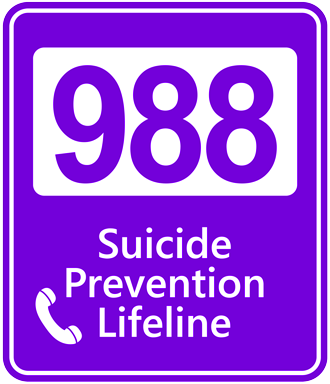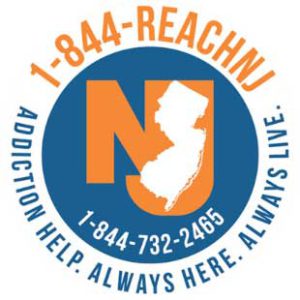Help
Support When and Where You Need It
Quick Help & Support
This page is dedicated to providing you with immediate assistance, addressing common questions, and guiding you through our services efficiently. Whether you need quick answers or help navigating our programs, you’re in the right place.
Frequently Asked Questions
Got questions? We've got answers. Browse through our frequently asked questions for swift insights into common inquiries. This section is designed to offer you quick, clear, and concise information to help streamline your experience with us.
Payment Options
- Cash & Money Orders
- Credit & Debit Cards
JSASHC accepts the following insurances:
- Aetna
- Aetna Better Health NJ
- Amerigroup/Wellpoint
- Braven
- Bravo
- Horizon Healthcare of NJ
- Humana (PPO Plan Only)
- Oxford
- United Healthcare
- WellCare

Medications for Opioid Use Disorder (M.O.U.D.) Treatment Basics
-
Is the use of medications like methadone and buprenorphine simply replacing one drug addiction with another?
No – Medications for Opioid Use Disorder (M.O.U.D.) treatment with buprenorphine and methadone are not heroin/opioid substitutes. They are prescribed or administered under monitored, controlled conditions, and are safe and effective for treatment of opioid addiction when used as directed. They help to stabilize the opioid system in the body.
-
How does methadone work?
Methadone is a synthetic (man-made) opioid that binds to the opioid receptors in the brain. At an effective dose methadone eliminates, and blocks the effects of illicit opioid use.
-
How does buprenorphine work?
Buprenorphine is a synthetic partial opioid which attaches to the opioid receptors on the brain. It has a stronger bond with the opioid receptors than other opioids. This helps block the effect of opioids, may reduce cravings and may reduce withdrawal symptoms
-
How does Vivitrol work?
Vivitrol attaches to the opioid receptors in the brain and blocks opioids from attaching to the opioid receptors in the brain. This results in someone not being able to feel the effects of opioids.
Treatment Duration and Process
-
How long will I need to be on M.O.U.D?
The length of time that a patient will remain on methadone will vary based upon the unique needs of each individual. Although methadone is safe for long-term use, patients are not required to remain on this medication long-term. Although some patients will remain on methadone for long-term maintenance, others will only utilize it short-term. Patients should work closely with their physician in order to comfortably wean off of their medication. Once a patient’s system is free from methadone, he or she may transition onto a different medication or remain medication-free.
-
If I miss a methadone dose, will I become sick?
This varies from person to person. Once on a stable dose of methadone many patients report not feeling sick if they miss a dose. Methadone has a much longer half life than most other opioid medications, and therefore is present and active in the body well beyond a 24 hour period. For this reason, some patients remain comfortable and do not experience withdrawal symptoms following a single missed dose. However, the metabolism of each person is different, and some patients may in fact begin to experience the onset of withdrawal if they miss a dose. It is always best to plan for daily dosing and to avoid missing a dose if at all possible.
M.O.U.D. and Pregnancy
-
Is it safe for a pregnant woman to take methadone?
Yes, it is considered safe for a pregnant women to take methadone. Methadone is considered the standard of care for pregnant opioid addicted women. By being maintained on methadone the mother and fetus will not be stressed by repetitive withdrawal symptoms. The mother will be in a stable state which also means the baby is in a stable state.
-
Will my baby be born addicted to methadone?
No, your baby is not “addicted “after birth. However, because your baby is physically dependent on methadone and will withdraw after birth. The withdrawal may or may not result in clinical symptoms of neonatal abstinence syndrome (NAS). NAS is a treatable condition and multiple studies have found no long term damage to babies born with NAS.
-
Can I take buprenorphine while I am pregnant?
Yes it is safe for a pregnant woman to take buprenorphine. By being maintained on buprenorphine the mother and fetus will not be stressed by repetitive withdrawal symptoms. The mother will be in a stable state which also means the baby is in a stable state.
Privacy and Confidentiality
-
Will my participation in a Medication for Opioid Use Disorder Treatment program be kept private?
Yes, it will. Treatment programs operate in accordance with Federal confidentiality law 42 CFR Part 2 and HIPAA. For more information refer to the confidentiality page.
Interactions and Concerns
-
Does methadone interact with other drugs or medications?
Because methadone can negatively interact with other medications, it is important for patients to openly discuss the use of other medications and/or substances with their physician and inform the methadone clinic doctor during your intake. Patients are also advised to refrain from using opioids, benzodiazepines and alcohol during the course of treatment due to the potentially dangerous effects that can take place when combined with methadone.
-
What happens if I use opioids while on Vivitrol?
Using opioids, even a small amount can lead to accidental overdose, serious injury, coma, or death.
-
Can someone possibly overdose by taking too much methadone or buprenorphine?
It is possible for an individual to overdose on methadone and overdose can be fatal. Mixing methadone with other sedatives or pain medications should never be attempted without first consulting with a physician. An overdose is less likely to occur on buprenorphine can be safer than methadone in that beyond 32 mg of buprenorphine “higher dose” does not lead to an increase in opioid effect
-
What happens if I take an opioid while on buprenorphine?
If the buprenorphine is taken first then the buprenorphine may help block the effect of the opioid. If someone is actively using other opioids and takes Buprenorphine, it may cause sudden and severe withdrawal.
Dispelling Myths
-
Does methadone damage tissues or erode my teeth?
Medical studies indicate that methadone does not harm the body's tissues and does not produce tooth decay. Dental problems experienced by recovering people are usually the result of accumulated health neglect that occurred during the active addiction period.
-
Will methadone show up on a drug screen?
The standard drug screen generally does not include methadone; however it can be requested as an additional test.
Employment Opportunities
Open Positions
Thank you for your interest in joining our team! Click on “Apply Now” for current open positions.
Please submit an application if you find something that is a good fit for you.


